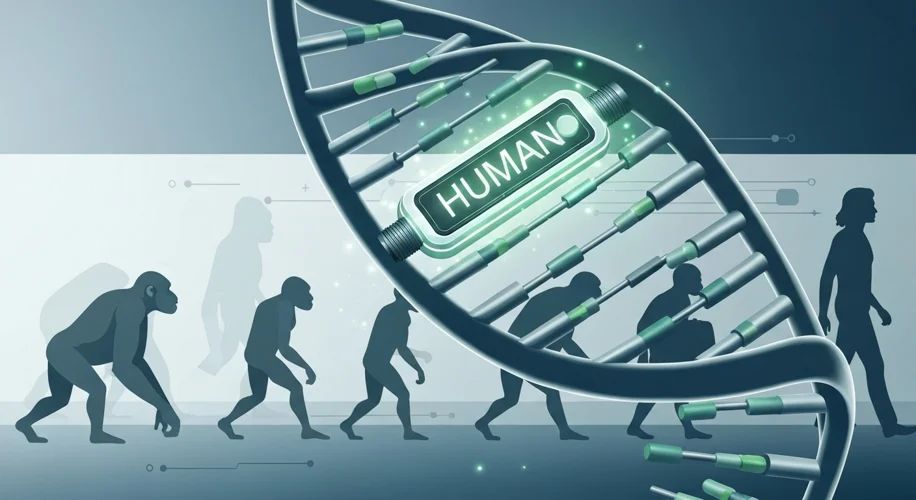Did you know that scientists might have found a tiny genetic switch that played a big role in making us human? It’s a fascinating discovery that touches on evolution and what makes our species so unique.
As someone with a background in biology, I find these kinds of insights into our own makeup incredibly compelling. It’s like finding a key that unlocks a deeper understanding of our place in the natural world.
What’s the Big Idea?
The research points to a specific region in our DNA that’s quite different from that of other primates, like chimpanzees. This region controls a gene called ARHGAP11B. Now, this gene isn’t found in our closest relatives. It seems to have appeared in our human ancestors through a genetic duplication event – a kind of copying error that, in this case, proved quite significant.
ARHGAP11B and Brain Development
What’s so special about ARHGAP11B? Well, studies have shown that when this gene is activated in mice, it can actually increase the size of their brains. More specifically, it appears to promote the growth of the cerebral cortex, the part of the brain responsible for complex thought, language, and consciousness – things we strongly associate with being human.
Think about it: this one tiny genetic change, this extra gene, might have given our ancestors a cognitive edge, setting us on a path that led to advanced tool use, language, and complex societies.
Evolutionary Leaps
Evolution often works in subtle ways. It’s not always about grand, sweeping changes, but sometimes about small tweaks in our genetic code that have enormous consequences over time. The emergence of ARHGAP11B is a prime example of this.
This discovery isn’t just about celebrating human uniqueness; it also reminds us of our deep evolutionary history. We share so much with other living creatures, yet small genetic differences have led to vastly different outcomes. It’s a powerful reminder of the interconnectedness of life on Earth.
Understanding these fundamental biological differences also helps us think about our impact on the planet. Our advanced cognitive abilities have allowed us to shape the environment in profound ways. Reflecting on what makes us human can also inspire us to think more deeply about our responsibilities towards the natural world.
It’s truly amazing what we’re learning about our own origins and what makes us, well, us. This kind of research into our genetic makeup is ongoing, and I can’t wait to see what other secrets our DNA might hold.

